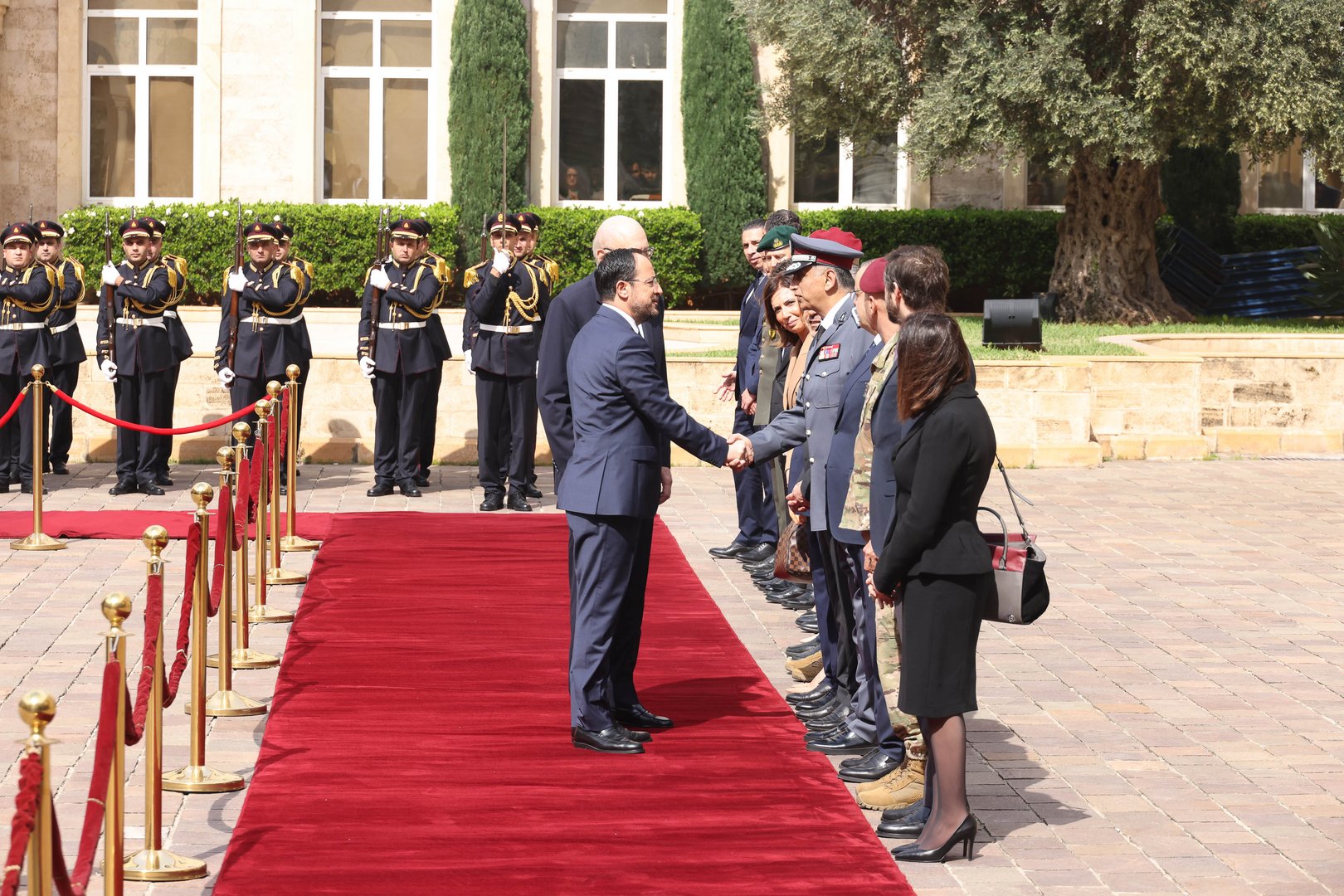President Nikos Christodoulides and Lebanon’s Prime Minister Najib Mikati on Monday discussed ways to improve the effective management of migratory flows from Lebanon to Cyprus during a meeting in Beirut.
Christodoulides also met the country’s House president Nabih Berri.
Christodoulides told Mikati that the issue of migration is “a common one”, adding that the response should be jointly addressed through coordinated actions.
“A very constructive dialogue took place during which the cooperation of the two countries with substantial assistance from the European Commission was agreed upon,” a statement released by the president’s office said.
Christodoulides stressed that the implementation of EU actions also depends on the results of those taken by both sides to address migration and increased flows towards Cyprus.
The leadership of Lebanon recognised the urgent need and committed to intensifying efforts to monitor and identify illegal trafficking networks.
It was also agreed that there will be a mutual commitment to implement the agreements reached during Monday’s discussions.
Earlier in the day, the director of the interior minister’s office Loizos Hadjivasiliou said that Nicosia is waiting for a response from Beirut regarding its needs for enhanced border surveillance and its position over the returns agreement.
After Lebanon said it could no longer accept returns from Cyprus, Hadjivasiliou said the interior ministry is still awaiting a response on the matter from its Lebanese counterpart after a letter outlining the issue was sent last July.
In the letter, the interior ministry proposed a series of assistance measures, including joint patrols and vessel provision, among others, to enhance border surveillance, to which there has been no response.
The two countries have had an ‘informal agreement’ that any migrants arriving in Cyprus’ waters from Lebanon are sent back. But last week the interior ministry here stated that despite the informal deal struck with Lebanese authorities on returns and the successful return of migrants on three occasions, the presence of more than two million Syrians in Lebanon has caused a reaction within the country, resulting in them no longer accepting migrant returns.
Interior Minister Constantinos Ioannou, accompanying Christodoulides in Lebanon, said last Saturday that the aim of the Republic is to convey to Lebanon Europe’s willingness for more support, assess the country’s needs and determine what is necessary to fulfil its obligations for more effective border policing.
“At the same time, we need to secure more funds for Lebanon in order to increase the effectiveness of border surveillance measures,” Ioannou said.
Christodoulides, along with Ioannou and Foreign Minister Constantinos Kombos, arrived in Lebanon on Monday morning.
Earlier, government spokesman Konstantinos Letymbiotis had said that Cyprus “will employ all available tools to tackle the significantly increased migration flows to the country.”
Last week alone, over 15 boats from Lebanon came to Cyprus carrying over 800 migrants.
Speaking to the media, Letymbiotis stressed the gravity of the situation, indicating that it warrants the attention of the European Union as well.
He highlighted the necessity for a coordinated management of the entire issue, noting that recent trends show that migration flows to Cyprus have been exclusively sea-based, originating from Lebanon.
The issue arising with Lebanon will also be discussed at the informal European Council scheduled for April 18 and 19.
Letymbiotis said the government has alternative plans to address the issue should Christodoulides’ efforts in Lebanon not yield results.
President Nikos Christodoulides on Sunday discussed migration with President of the European Commission Ursula von der Leyen during a meeting in Athens.
Last week Lebanese ambassador to Cyprus Claude El Hajal told Politis newspaper that the situation with migrants in her country has spun out of control. That is why Beirut is asking the international community, particularly the EU, to help because “these people need to get back to their home.”
El Hajal added: “This is our position, but they are pressuring us to keep them in Lebanon…on the pretext that Syria is still unsafe.”
Asked about the EU’s assistance to Lebanon, the ambassador called it “peanuts”.
“You can understand what it means to host two million irregular immigrants in a country with a population of four million,” she said.







Click here to change your cookie preferences